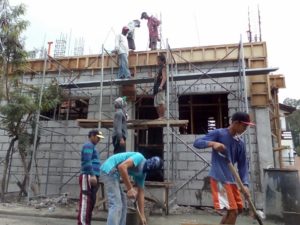 The house construction team is consist of numerous people including professionals, skill workers, etc. who will contribute to the completion of your new home.
The house construction team is consist of numerous people including professionals, skill workers, etc. who will contribute to the completion of your new home.
If you are planning to do house construction with yourself, you have to deal with the construction team. Effective management is necessary to avoid delays, conflicts and extra cost.
The following are the person who will be involved in house construction
Architect/Draftsman
Architect or draftsman will be responsible for making a house plan. A house plan is consist of a list of drawing that defines the construction specification of a residential house such as dimension, floor layout, materials to be used, installation methods, techniques, etc.
Engineer
The work of construction engineer includes setting up the work according to drawing and specification on the house plan and supervises the work of the construction team. He will be responsible for the management of construction. Also, he reviews the plans and financial projections for the job
Foreman
A foreman is the one who is occupies the supervisory duties over mason and laborer. He should have a solid background in the construction field and has extensive experience so that he has the ability to direct work of others and make quick decisions. Duties of foreman includes delegates task to construction workers, make sure that sites are clean and free from hazardous materials prior the beginning of the construction project, monitor daily construction to ensure quality, take of the materials to be used on the construction site and many more.
Mason
He is the one who will do most of the work for building. Mason work includes main building brickwall, column structure, earth work, install bricks and other cement-based materials, operated heavy duty equipment’s, drainage, other civil works and usually assigned to do the heavy tasks.
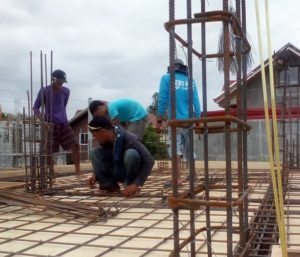
Carpenter
The carpenter is the one who makes ceiling, kitchen cabinet, built-in cabinet, bedroom cabinet, windows, doors, etc. He works with materials including woods, plastic, fiberglass or dry wall. He is also responsible for installing cabinet and moldings, doors, etc.
Electrician
The construction electrician will be the one who will installed electrical in the house. He should be capable of laying out, installing, testing, troubleshooting and repairing electrical systems to provide light, heat, communication and power to a range of new and existing residential.
Plumber
The plumber is responsible for the installation and repair of water supply lines, waste disposal systems, and related appliances and fixtures to keep homes flowing smoothly.
Construction worker. – Construction worker is also called construction laborer. They help and assist the mason, carpenters. Their work includes load and unload construction materials, distribute materials, mix and pour concrete asphalt, remove debris, erect concrete forms and scaffolding, etc.
Welder
The welder is the one who will make roof trusses, windows grills, door grills, gate, and other works that requires joining of metal products.
Painter
This person is the one who applies paint, stain and coatings to walls, cabinets, doors, ceiling and buildings, and other structures. He applies paint or other finishes using hand brushes, rollers or sprayers.
 In order to start construction your home, there are permits or documents needed.
In order to start construction your home, there are permits or documents needed. Project: Renovation of Bungalow House
Project: Renovation of Bungalow House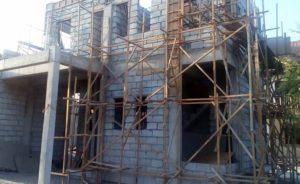 There are some factors to consider before someone engage in house construction. These factors are very important so that you will be in the right track and minimize the expenses when building your house.
There are some factors to consider before someone engage in house construction. These factors are very important so that you will be in the right track and minimize the expenses when building your house.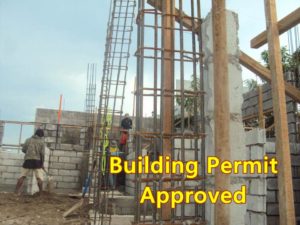 Building permit is one of the requirements before the start of your house construction. You or your contractor or designer will be responsible for securing building permit. Building permit is with the compliance with the proper construction of a house or a building set by law or the National Building Code. It is to ensure that the project plans comply with local standards for land use, zoning and construction.
Building permit is one of the requirements before the start of your house construction. You or your contractor or designer will be responsible for securing building permit. Building permit is with the compliance with the proper construction of a house or a building set by law or the National Building Code. It is to ensure that the project plans comply with local standards for land use, zoning and construction.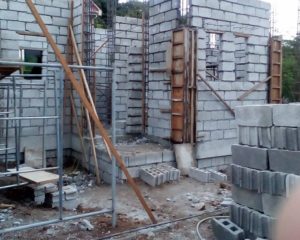 Building your dream house is means a large amount of money so it better to find ways to lower the cost of your house construction. When cutting a cost, make sure that quality of your house did not sacrifice. Always go to the branded materials.
Building your dream house is means a large amount of money so it better to find ways to lower the cost of your house construction. When cutting a cost, make sure that quality of your house did not sacrifice. Always go to the branded materials. The house construction team is consist of numerous people including professionals, skill workers, etc. who will contribute to the completion of your new home.
The house construction team is consist of numerous people including professionals, skill workers, etc. who will contribute to the completion of your new home.
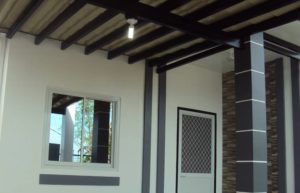 You really want to have your own house but you don’t know how and where to start. It is important make to at least know steps in preparing for your dream house.
You really want to have your own house but you don’t know how and where to start. It is important make to at least know steps in preparing for your dream house.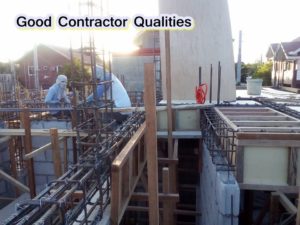 One of the hardest decisions to make is to choose a best contractor or builders for your dream house. If you choose a wrong contractor your house might be suffer as well as your budget.
One of the hardest decisions to make is to choose a best contractor or builders for your dream house. If you choose a wrong contractor your house might be suffer as well as your budget.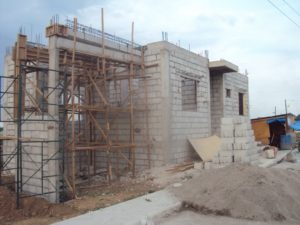 It is good to seek advice for those who already experiencing the stress and pressure of starting a house construction. Constructing your dream house is a large investment so it is essential to be careful in every decision you make to avoid regret in the future and to minimize the cost of your dream house.
It is good to seek advice for those who already experiencing the stress and pressure of starting a house construction. Constructing your dream house is a large investment so it is essential to be careful in every decision you make to avoid regret in the future and to minimize the cost of your dream house.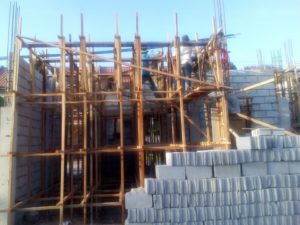 Building your dream house entails a large amount of money so you should know some ways to lower the cost of your house. When you cut some cost for your house, never sacrifice the quality of your house to avoid regret in the end. Low quality house means more maintenance cost in the future.
Building your dream house entails a large amount of money so you should know some ways to lower the cost of your house. When you cut some cost for your house, never sacrifice the quality of your house to avoid regret in the end. Low quality house means more maintenance cost in the future.